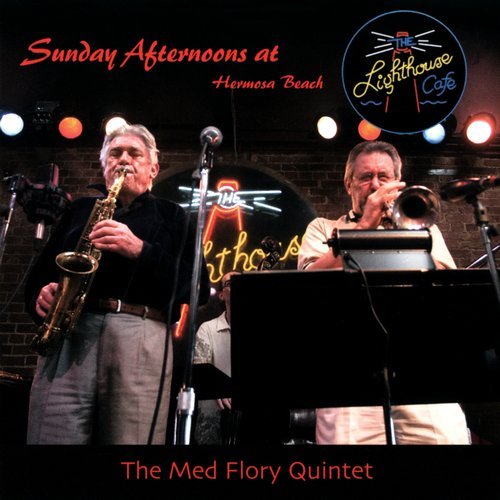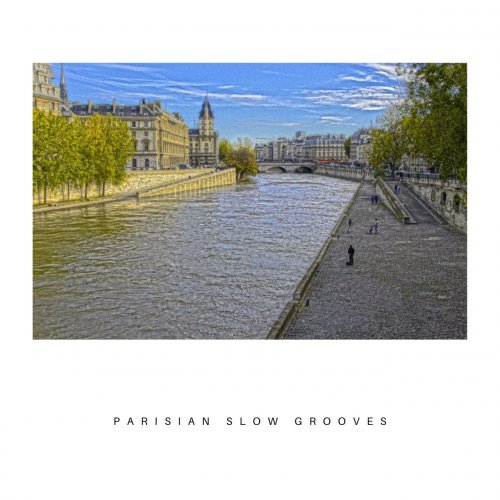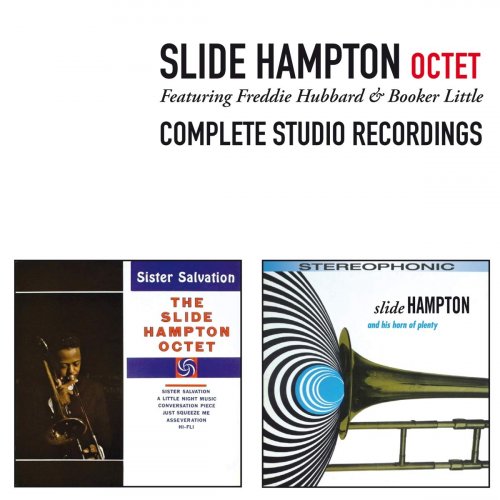The Beatles - Abbey Road (Anniversary Edition) (2019)
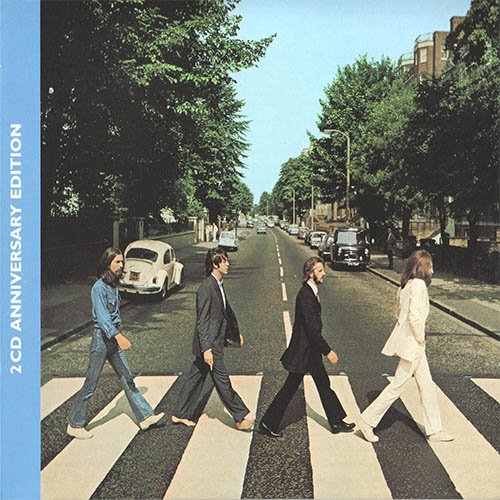
Artist: The Beatles
Title: Abbey Road
Year Of Release: 1969 / 2019
Label: Apple Records – 0602577915079 / 2 x CD, Anniversary Edition
Genre: Pop Rock
Quality: 320 / FLAC (tracks+.cue,log artwork)
Total Time: 1:39:20
Total Size: 405 / 806 Mb
WebSite: Album Preview
Tracklist: Title: Abbey Road
Year Of Release: 1969 / 2019
Label: Apple Records – 0602577915079 / 2 x CD, Anniversary Edition
Genre: Pop Rock
Quality: 320 / FLAC (tracks+.cue,log artwork)
Total Time: 1:39:20
Total Size: 405 / 806 Mb
WebSite: Album Preview
CD 1
01. Come Together (4:20)
02. Something (3:02)
03. Maxwell's Silver Hammer (3:28)
04. Oh! Darling (3:27)
05. Octopus's Garden (2:51)
06. I Want You (She's So Heavy) (7:47)
07. Here Comes the Sun (3:06)
08. Because (2:46)
09. You Never Give Me Your Money (4:03)
10. Sun King (2:26)
11. Mean Mr. Mustard (1:06)
12. Polythene Pam (1:13)
13. She Came In Through the Bathroom Window (1:59)
14. Golden Slumbers (1:31)
15. Carry That Weight (1:36)
16. The End (2:22)
17. Her Majesty (0:25)
CD 2
01. Come Together (Take 5) (3:30)
02. Something (Studio Demo) (3:37)
03. Maxwell's Silver Hammer (Take 12) (4:44)
04. Oh! Darling (Take 4) (3:31)
05. Octopus's Garden (Take 9) (1:43)
06. I Want You (She's So Heavy) (Trident Recording Session & Reduction Mix) (6:59)
07. Here Comes The Sun (Take 9) (3:41)
08. Because (Take 1 - Instrumental) (3:08)
09. You Never Give Me Your Money (Take 36) (5:18)
10. Sun King (Take 20) (3:14)
11. Mean Mr. Mustard (Take 20) (1:34)
12. Polythene Pam (Take 27) (1:39)
13. She Came In Through The Bathroom Window (Take 27) (2:06)
14. Golden Slumbers/Carry That Weight (Takes 1-3) (3:21)
15. The End (Take 3) (2:11)
16. Her Majesty (Takes 1-3) (1:36)
The perfect ending to a recording career, this LP shows a band still in its prime, capable of songwriting and recording feats others could only envy.
One more "like we used to" was how Paul McCartney framed it to producer George Martin; a chance to make a "good album" was George Harrison's take. They were hoping to bounce back after the serious downer that had been the Get Back sessions, which, months after they wrapped, had yet to yield an album anyone was happy with. But what "like we used to" meant, exactly, was rather hard to pin down: The Beatles' life as a band was so compressed, with such a massive amount of music and change packed into a short time, that there was never a single moment that could be used as a reference point for what a Beatles record was supposed to be. So when they returned to the EMI studios on Abbey Road in summer 1969, it wasn't clear how it would go. They still weren't getting along; their musical interests continued to diverge; John Lennon didn't really want to continue with the Beatles; Paul McCartney did, but on his own terms, which meant that he set the pace and got what he wanted. Though it was unspoken, they all had a good idea that this could really be the end. So what now? One more, then.
And what a finish. The Beatles' story is so enduring in part because it was wrapped up so perfectly. Abbey Road shows a band still clearly in its prime, capable of songwriting and recording feats other groups could only envy. Working for the first time exclusively on an eight-track tape machine, their mastery of the studio was undeniable, and Abbey Road still sounds fresh and exciting 40 years on (indeed, of the 2009 remasters, the improvements and sonic detail here are the most striking). Even if it's ultimately the Paul McCartney and George Martin show, as demonstrated on the famous second-side medley, everyone brought his A-game. Where Sgt. Pepper's Lonely Hearts Club Band strained for significance, The Beatles was schizophrenic, and Let It Be was a drag streaked with greatness, Abbey Road lays out its terms precisely and meets them all. There's not a duff note on the damn thing.
This applies even if, like me, you've never quite understood the attraction of John Lennon's "I Want You (She's So Heavy)" and sometimes find yourself skipping ahead to George Harrison's second-side lead-off "Here Comes the Sun". "I Want You" is certainly a singular item in the Beatles discography, with its extreme repetition, stark simplicity, and epic three-minute coda, but it requires a certain kind of mood to appreciate. Yet, along with album-opener "Come Together", it also shows how Lennon finally found a way to square his latter-day interest in leaner and edgier rock'n'roll with trippy studio experimentation. Lennon's two big songs on the first side are raw, direct, and biting, but they're also lush studio creations, in keeping with the spirit of the album. And the sophisticated sheen laid over top has the effect of making them seem more like "Beatles songs" compared to, say, Lennon's White Album output. Abbey Road feels like one thing.
Paul McCartney's "Maxwell's Silver Hammer" and Ringo Starr's "Octopus's Garden", two silly, charming, childlike songs in a long tradition of silly, charming, childlike Beatles songs, round out side one. But then, oh: side two. The suite that runs from "You Never Give Me Your Money" through "Her Majesty" finds the Beatles signing off in grand fashion. Gathering scraps of material that had piled up, McCartney and Martin pieced together a song cycle bursting with light and optimism, and this glorious stretch of music seems to singlehandedly do away with the bad vibes that had accumulated over the previous two years. From the atmospheric rip of Fleetwood Mac's "Albatross" that is "Sun King" to the sharp pair of Lennon fragments, "Mean Mr. Mustard" and "Polythene Pam" (the former given a line about "sister Pam" to join the pieces), and on through the explosive, one-climax-after-another run of "She Came in Through the Bathroom Window", "Golden Slumbers", and "Carry That Weight", the nine fragments in 16 minutes add up to so much more than the sum of their parts.
The music is tempered with uncertainly and longing, suggestive of adventure, reflecting a sort of vague wisdom; it's wistful, earnest music that also feels deep, even though it really isn't. But above all it just feels happy and joyous, an explosion of warm feeling rendered in sound. And then, the perfect capper, finishing with a song called "The End", which features alternating guitar solos from John, George, and Paul and a drum solo from Ringo. It was an ideal curtain call from a band that just a few years earlier had been a bunch of punk kids from a nowheresville called Liverpool with more confidence than skill. This is how you finish a career.
The Beatles' run in the 1960s is good fodder for thought experiments. For example, Abbey Road came out in late September 1969. Though Let It Be was then still unreleased, the Beatles wouldn't record another album together. But they were still young men: George was 26 years old, Paul was 27, John was 28, and Ringo was 29. The Beatles' first album, Please Please Me, had come out almost exactly six and a half years earlier. So if Abbey Road had been released today, Please Please Me would date to March 2003. So think about that for a sec: Twelve studio albums and a couple of dozen singles, with a sound that went from earnest interpreters of Everly Brothers and Motown hits to mind-bending sonic explorers and with so many detours along the way-- all of it happened in that brief stretch of time. That's a weight to carry.
One more "like we used to" was how Paul McCartney framed it to producer George Martin; a chance to make a "good album" was George Harrison's take. They were hoping to bounce back after the serious downer that had been the Get Back sessions, which, months after they wrapped, had yet to yield an album anyone was happy with. But what "like we used to" meant, exactly, was rather hard to pin down: The Beatles' life as a band was so compressed, with such a massive amount of music and change packed into a short time, that there was never a single moment that could be used as a reference point for what a Beatles record was supposed to be. So when they returned to the EMI studios on Abbey Road in summer 1969, it wasn't clear how it would go. They still weren't getting along; their musical interests continued to diverge; John Lennon didn't really want to continue with the Beatles; Paul McCartney did, but on his own terms, which meant that he set the pace and got what he wanted. Though it was unspoken, they all had a good idea that this could really be the end. So what now? One more, then.
And what a finish. The Beatles' story is so enduring in part because it was wrapped up so perfectly. Abbey Road shows a band still clearly in its prime, capable of songwriting and recording feats other groups could only envy. Working for the first time exclusively on an eight-track tape machine, their mastery of the studio was undeniable, and Abbey Road still sounds fresh and exciting 40 years on (indeed, of the 2009 remasters, the improvements and sonic detail here are the most striking). Even if it's ultimately the Paul McCartney and George Martin show, as demonstrated on the famous second-side medley, everyone brought his A-game. Where Sgt. Pepper's Lonely Hearts Club Band strained for significance, The Beatles was schizophrenic, and Let It Be was a drag streaked with greatness, Abbey Road lays out its terms precisely and meets them all. There's not a duff note on the damn thing.
This applies even if, like me, you've never quite understood the attraction of John Lennon's "I Want You (She's So Heavy)" and sometimes find yourself skipping ahead to George Harrison's second-side lead-off "Here Comes the Sun". "I Want You" is certainly a singular item in the Beatles discography, with its extreme repetition, stark simplicity, and epic three-minute coda, but it requires a certain kind of mood to appreciate. Yet, along with album-opener "Come Together", it also shows how Lennon finally found a way to square his latter-day interest in leaner and edgier rock'n'roll with trippy studio experimentation. Lennon's two big songs on the first side are raw, direct, and biting, but they're also lush studio creations, in keeping with the spirit of the album. And the sophisticated sheen laid over top has the effect of making them seem more like "Beatles songs" compared to, say, Lennon's White Album output. Abbey Road feels like one thing.
Paul McCartney's "Maxwell's Silver Hammer" and Ringo Starr's "Octopus's Garden", two silly, charming, childlike songs in a long tradition of silly, charming, childlike Beatles songs, round out side one. But then, oh: side two. The suite that runs from "You Never Give Me Your Money" through "Her Majesty" finds the Beatles signing off in grand fashion. Gathering scraps of material that had piled up, McCartney and Martin pieced together a song cycle bursting with light and optimism, and this glorious stretch of music seems to singlehandedly do away with the bad vibes that had accumulated over the previous two years. From the atmospheric rip of Fleetwood Mac's "Albatross" that is "Sun King" to the sharp pair of Lennon fragments, "Mean Mr. Mustard" and "Polythene Pam" (the former given a line about "sister Pam" to join the pieces), and on through the explosive, one-climax-after-another run of "She Came in Through the Bathroom Window", "Golden Slumbers", and "Carry That Weight", the nine fragments in 16 minutes add up to so much more than the sum of their parts.
The music is tempered with uncertainly and longing, suggestive of adventure, reflecting a sort of vague wisdom; it's wistful, earnest music that also feels deep, even though it really isn't. But above all it just feels happy and joyous, an explosion of warm feeling rendered in sound. And then, the perfect capper, finishing with a song called "The End", which features alternating guitar solos from John, George, and Paul and a drum solo from Ringo. It was an ideal curtain call from a band that just a few years earlier had been a bunch of punk kids from a nowheresville called Liverpool with more confidence than skill. This is how you finish a career.
The Beatles' run in the 1960s is good fodder for thought experiments. For example, Abbey Road came out in late September 1969. Though Let It Be was then still unreleased, the Beatles wouldn't record another album together. But they were still young men: George was 26 years old, Paul was 27, John was 28, and Ringo was 29. The Beatles' first album, Please Please Me, had come out almost exactly six and a half years earlier. So if Abbey Road had been released today, Please Please Me would date to March 2003. So think about that for a sec: Twelve studio albums and a couple of dozen singles, with a sound that went from earnest interpreters of Everly Brothers and Motown hits to mind-bending sonic explorers and with so many detours along the way-- all of it happened in that brief stretch of time. That's a weight to carry.
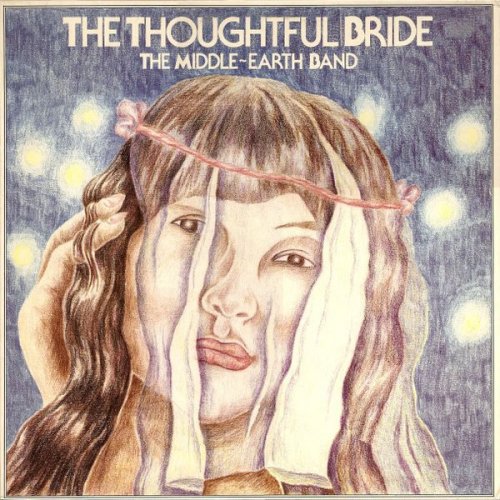
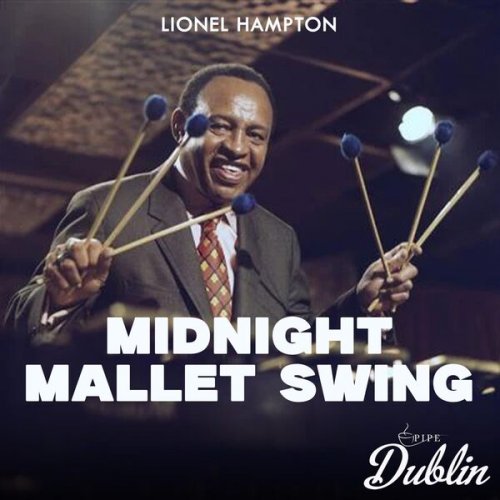
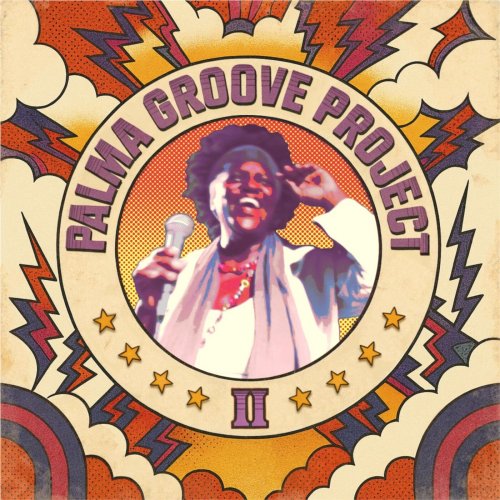
![Black Viiolet - Dark Blue (2026) [Hi-Res] Black Viiolet - Dark Blue (2026) [Hi-Res]](https://www.dibpic.com/uploads/posts/2026-02/1771144440_cover.jpg)
![Maria Dybbroe & P.O.Jørgens - Counting The Flowers (2026) [Hi-Res] Maria Dybbroe & P.O.Jørgens - Counting The Flowers (2026) [Hi-Res]](https://www.dibpic.com/uploads/posts/2026-02/1771041716_cover.jpg)
